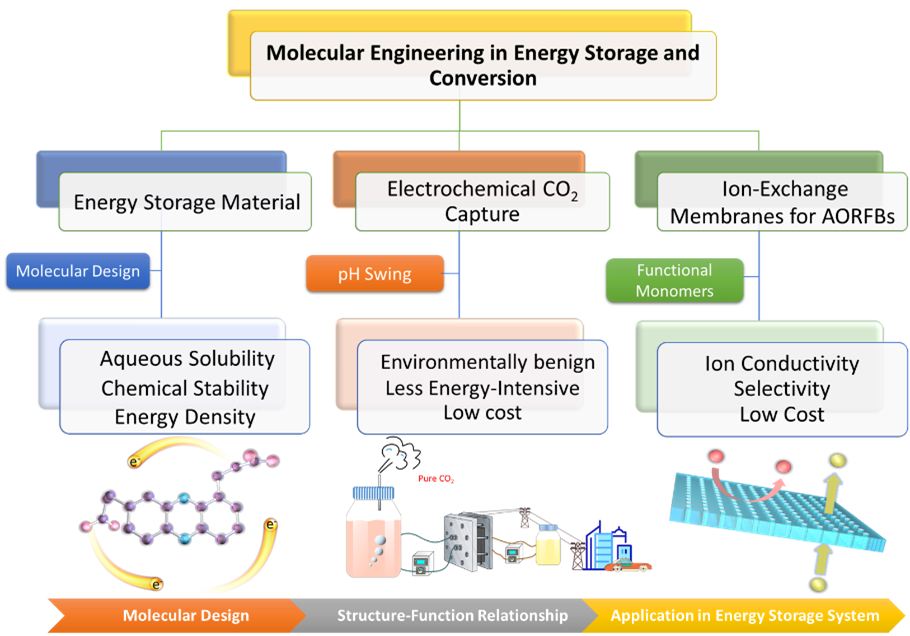

Organic Functional Materials Lab
—— Molecular Engineering in Energy Storage and Conversion
Research
Research in our group centers on the interplay between organic materials design, fundamental aspects of understanding the intrinsic functional mechanisms, and device applications in energy storage and conversions. We aim to develop novel organic materials from the molecular level, endowing them with different functions by molecular design and engineering. We are trying to tackle issues regarding energy consumption and environmental protection.
Starting from the Industrial Revolution, the global average temperature today is more than 1 oC warmer in total, with an increment of 0.18 oC per decade. Greenhouse gas emission is the primary driver for climate change, where the accumulated CO2 emission from fossil fuel consumption is the major source and leads to global warming, ocean acidification, and other severe environmental problems. Replacement of fossil energy by clean energy is an efficient way to cut CO2 emission, on the other hand, CO2 capture from a point source such as a fossil fuel or biomass combustion power plant or directly from the air is also essential as fossil fuel combustion is going to remain significant for a long time, and hard-to-abate emissions will still exist.
The research topics in my group cover three aspects,
1) the development of water-soluble redox-active organic electrolytes for clean energy storage;
2) the development of efficient electrochemical CO2 capture methods;
3) the synthesis and exploration of porous ion-exchange membranes for aqueous organic redox flow batteries (AORFBs).

Figure 1. The big picture of the research areas in our group.